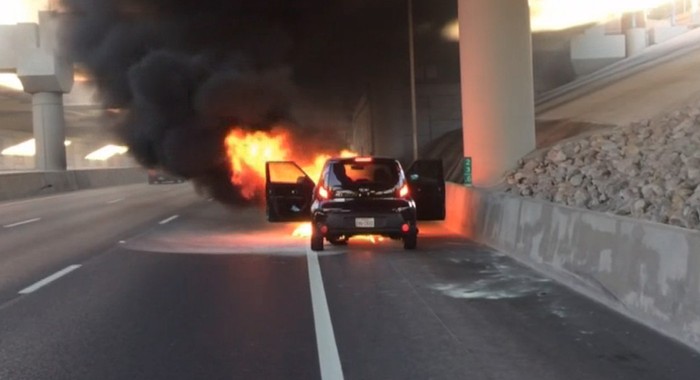
Study: Hyundai-Kia fires more prevalent with small, turbocharged engines
The Highway Data Loss Institute says it is unclear if the company's recall will completely eliminate the additional risk of fire.
An analysis by the Highway Data Loss Institute has revealed a higher rate of non-crash fires in a wide range of Hyundai-Kia models with smaller, turbocharged engines.
The Korean brands recently launched a recall to resolve botched repairs from a previous campaign involving the 2011-2014 Hyundai Sonata, 2013-2014 Hyundai Santa Fe Sport, 2011-2014 Kia Optima, 2012-2014 Kia Sorento and 2011-2013 Kia Sportage.
"Analysis by HLDI suggests that the companies are correctly targeting vehicles with small and/or turbocharged engines, though it's unclear whether their proposed remedy will eliminate the additional risk of fire that these models carry," the institute says. "HLDI research also points to an increased risk of fire for turbocharged engines generally, across brands."
The HLDI analysis found a significantly higher rate of non-crash fire claims for the 2011-2013 Optima and Sonata compared to other midsize sedans, while the Sorento, Santa Fe and Santa Fe Sport also had higher non-crash fire claim rates than other midsize SUVs.
The observations prompted analysts to look at fire claim frequency by engine type. The 2.0-liter engine used by both Hyundai and Kia was associated with 4.2 claims per 10,000 insured vehicle years, compared with 1.7 for control vehicles. The companies' 2.4-liter engine was also higher with a frequency of 2.7. Hyundai and Kia models with a 3.3- or 3.5-liter engine exhibited the same rate of fire claims as the control group.
"For vehicles with the 2.0-liter turbocharged and 2.4-liter engines, fire risk went up dramatically as the vehicles aged," the HLDI adds.
The analysts suggest there may be something specific to that turbocharged engine that may be causing additional fire risk. To be fair, however, the study found higher rates of non-crash fires among turbocharged and supercharged engines from many manufacturers.